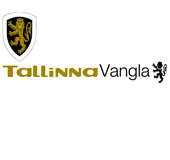You are in: Partnership > Project Partners > Partner's form
| Name of the organisation: | The Prison of Tallinn |  |
| Address: | Magasini 35, 10138 Tallinn, Estonia | |
| Tel: | +372 612 7530 | |
| Fax: | ||
| Web site: | http://www.vangla.ee/43636 |
| Name of the contact person: |
Laura Kikas |  |
| Function: | Deputy governor | |
| Tel: | +372 612 7631 | |
| Fax: | ||
| E-mail: | [email protected] |
| Name of the contact person: |
Katriin Savitš |  |
| Function: | Supervisor-senior probation officer | |
| Tel: | +372 612 7867 | |
| Fax: | ||
| E-mail: | [email protected] |
| Name of the contact person: |
Kaarel Kraus |  |
| Function: | Contact person | |
| Tel: | +372 612 7621 | |
| Fax: | ||
| E-mail: | [email protected] |
| Name of the contact person: |
Pille Tunger |  |
| Function: | Assistant to the director of prison | |
| Tel: | +372 612 7523 | |
| Fax: | ||
| E-mail: | [email protected] |
| Type of organisation: |
|
| Fields of action: |
|
| DESCRIPTION OF THE ORGANISATION |
The Department of Prisons in the Ministry of Justice is the administrative management unit of the prison system with its principal duty of managing, enhancing and supervising work in prisons. Tallinn Prison, as other three prisons in Estonia, is directly supervised by the department.
Tallinn Prison is a regional prison, which serves the northern and western part of Estonia. Tallinn Prison is currently the largest prison in Estonia and is located in the city of Tallinn on the site of the former prisoner-of-war camp that operated between 1944 and 1949 and renovated afterwards. The history of prison starts from 1919 and this year 93rd anniversary was celebrated. Preparations are currently being made for the construction of a new Tallinn Prison. In the structure of Tallinn prison are, since 2008 emerging process, two probation departments supervising round 3500 probationers, which is approximately half of the total number of probationers in Estonia. Probation officers are dealing with implementation of wide palette of community sanctions and measures from pre-sentence reports to parole orders. Prison is managed by a director who is appointed to the position for five years term by the Minister of Justice. There are 600 workers in Tallinn prison (of whom 372 are prison officers and round 100 probation officers) are active in 14 departments of the prison. There are on every day basis round 1190 inmates serving their sentence in the prison, round 450 of whom are remand prisoners. Inmates can obtain basic and secondary education, and learn the trades of woodwork, construction, electrical maintenance and gardening. Inmates work in the prison’s kitchen and laundry, carry out repairs and renovation work and are employed in other workshops. More can be found: http://www.vangla.ee/43636- |
| EXPERIENCE IN PREVIOUS PROJECTS |
The Estonian Penitentiary Service and Tallinn prison as a great part of it, has been involved in various projects similar to current announcement. A few to mention are listed as follows:
In addition to aforementioned projects the Prison Service has a wide and active network of cooperation with several partners across Europe. There have been various ad hoc projects with own funding starting from trainings and visits and ending with introduction of new working methods (social rehabilitation programmes, risk-assessment tool etc). |
| EXPERIENCE AND EXPERTISE OF THE ORGANIZATION IN THE PROJECT’S SUBJECT AREA |
Tallinn prison is the biggest regional prison in Estonia, which serves approximately a half of the Estonian territory in terms of implementation of custodial and non-custodial sentences.
During past twenty years the Estonian prisons have went through enormous changes, which nowadays has resulted with introduction of modern practices in terms of rehabilitation and risk-management of offenders and high standards of carrying out everyday duties. There are round 600 workers with different background and expertise available in the organisation, which contributes to the project delivery. Many of the workers and also from a project team have participated in the international cooperation projects and are experts of their field locally. |
| CONTRIBUTIONS THAT CAN BE PROVIDED TO THE PROJECT |
Partners representatives participate in the preparation and implementation of the project as follows:
|